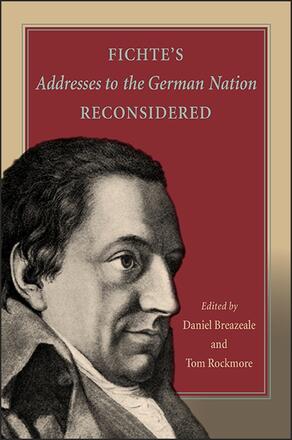
Fichte's Addresses to the German Nation Reconsidered
Alternative formats available from:
Essays on one of Fichte's best known and most controversial works.
Description
One of J. G. Fichte's best-known works, Addresses to the German Nation is based on a series of speeches he gave in Berlin when the city was under French occupation. They feature Fichte's diagnosis of his own era in European history as well as his call for a new sense of German national identity, based upon a common language and culture rather than "blood and soil. " These speeches, often interpreted as key documents in the rise of modern nationalism, also contain Fichte's most sustained reflections on pedagogical issues, including his ideas for a new egalitarian system of Prussian national education. The contributors' reconsideration of the speeches deal not only with technical philosophical issues such as the relationship between language and identity, and the tensions between universal and particular motifs in the text, but also with issues of broader concern, including education, nationalism, and the connection between morality and politics.
Daniel Breazeale is Professor of Philosophy and Distinguished Professor of Arts and Sciences at the University of Kentucky. Tom Rockmore is Humanities Chair Professor and Professor of Philosophy at Peking University, China. Both have authored, edited, and translated many books. Together, they are the coeditors of Fichte's Vocation of Man: New Interpretive and Critical Essays, also published by SUNY Press.
Reviews
"…wide-ranging, thoughtful, scholarly, and necessary: a welcome and much needed reconsideration of a purportedly 'toxic' text. " — Journal of the History of Philosophy